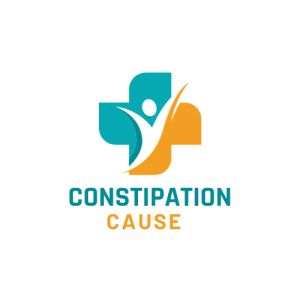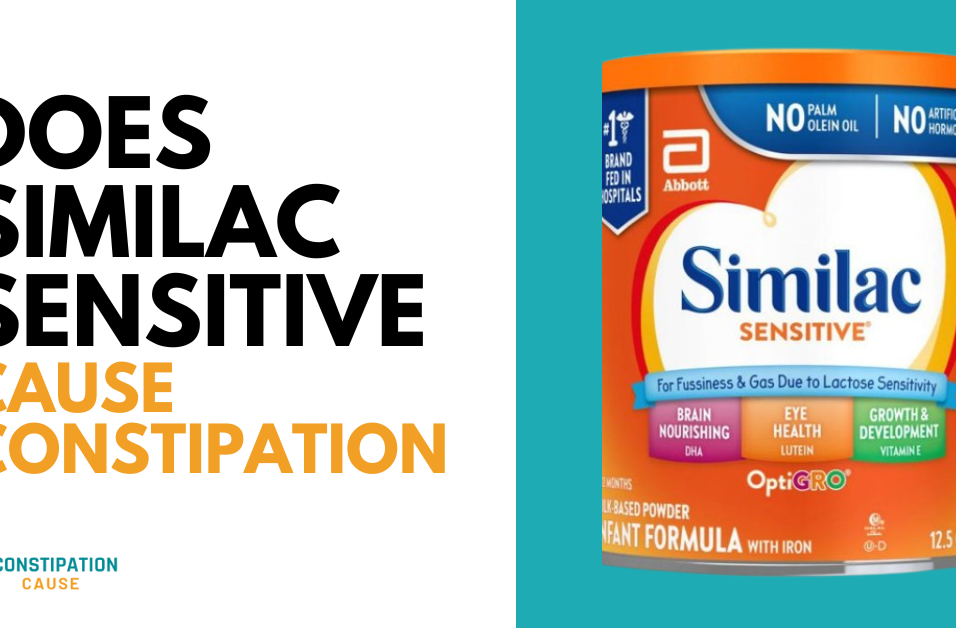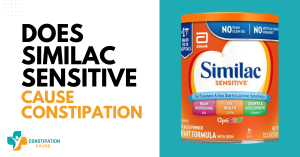Cocaine use, a pervasive concern, extends beyond its immediate effects, potentially impacting various physiological systems, including the digestive system.
Yes, cocaine can cause constipation. It disrupts normal bowel function by altering neurotransmitter levels and reducing blood flow to the intestines, leading to slowed digestion and difficulty passing stool. Chronic cocaine use can exacerbate these effects, posing risks to digestive health and causing ongoing constipation issues. Recognizing the effects of cocaine on bowel movements is crucial for a comprehensive understanding of its health implications.
Therefore, in this article, we will delve into the potential effects of cocaine on digestive health, emphasizing the significance of awareness and knowledge in addressing this complex issue.
So, let’s get started!
The Mechanism of Cocaine:
Cocaine, a powerful stimulant, exerts its effects primarily on the nervous system, leading to a cascade of physiological responses. The drug interferes with neurotransmitter signaling, particularly involving dopamine, norepinephrine, and serotonin. Here’s an overview of cocaine’s mechanism of action and its impact on bodily functions:
1. Neurotransmitter Disruption:
Cocaine inhibits the reuptake of neurotransmitters, including dopamine, norepinephrine, and serotonin, in the synaptic cleft, prolonging their presence and intensifying signaling.
2. Dopaminergic System:
Cocaine primarily affects the dopaminergic system, leading to increased dopamine levels in the brain’s reward pathways. This elevation contributes to the intense euphoria associated with cocaine use.
3. Norepinephrine and Serotonin:
By impeding the reuptake of norepinephrine and serotonin, cocaine amplifies their effects, resulting in heightened arousal, increased heart rate, and altered mood.
4. Central Nervous System Stimulation:
Cocaine’s impact extends beyond neurotransmitter modulation, manifesting as heightened alertness, increased energy, and a sense of confidence.
5. Peripheral Effects:
Cocaine stimulates the sympathetic nervous system, leading to vasoconstriction, increased blood pressure, and reduced blood flow to various organs.
Cocaine-induced gastrointestinal issues:
Gastrointestinal complications with cocaine extends to the gastrointestinal (GI) system, leading to notable changes in normal digestive processes. The drug’s influence on the GI system can be explained through various mechanisms:
1. Vasoconstriction:
Cocaine’s vasoconstrictive effects reduce blood flow to the gastrointestinal tract, potentially compromising the normal functioning of the digestive system.
2. Reduced Motility:
Cocaine may hinder the coordinated contractions of the intestines, leading to slowed motility. This disruption can impede the smooth passage of stool through the digestive tract.
4. Ischemia and Tissue Damage:
The vasoconstrictive properties of cocaine can result in ischemia, depriving the GI tissues of adequate blood supply. Prolonged ischemia can lead to tissue damage and compromise the integrity of the digestive system.
5. Gastric Ulcers and Inflammation:
Chronic cocaine use has been associated with the development of gastric ulcers and inflammation in the GI tract, further contributing to disturbances in normal digestive function.
6. Dehydration and Electrolyte Imbalance:
Cocaine’s stimulating effects may lead to increased perspiration and reduced fluid intake, potentially causing dehydration. This, coupled with altered electrolyte balance, can impact the consistency of stool and contribute to constipation.
Research and Studies:
While cocaine’s influence on gastrointestinal health has not been extensively studied, there is evidence suggesting potential connections and mechanisms:
1. Vasoconstriction and GI Effects:
Studies indicate that cocaine-induced vasoconstriction can compromise blood flow to the gastrointestinal tract, leading to ischemia and potential disruptions in normal bowel function.
2. Neurotransmitter Modulation:
Research explores how cocaine’s impact on neurotransmitters, particularly dopamine and serotonin, may influence enteric nervous system function, possibly contributing to alterations in bowel motility.
3. Clinical Observations:
Clinical reports highlight cases where chronic cocaine use is associated with gastrointestinal complications, including ischemic colitis, ulcers, and bowel perforation, which may lead to constipation.
4. Dehydration and Electrolyte Imbalance:
Studies suggest that cocaine’s stimulating effects can contribute to dehydration, potentially affecting stool consistency and promoting constipation, especially when combined with inadequate fluid intake.
Cocaine-related constipation symptoms
- Abdominal discomfort and bloating.
- Infrequent bowel movements.
- Straining during bowel movements.
Impact on Overall Well-being:
- Disrupted daily routines and discomfort.
- Increased risk of hemorrhoids.
- Potential complications like fecal impaction.
Link to Cocaine Use:
- Cocaine’s vasoconstrictive effects may exacerbate constipation.
- GI complications from cocaine use can contribute to digestive issues.
- Recognizing constipation as a potential side effect of cocaine is crucial for comprehensive health awareness.
Cocaine Abuse and Lifestyle Factors:
1. Poor Nutrition:
- Inadequate dietary fiber from poor nutrition can exacerbate constipation, compounded by the impact of cocaine on GI function.
2. Dehydration:
- Cocaine’s stimulant properties, coupled with reduced fluid intake, may lead to dehydration, influencing stool consistency and contributing to constipation.
3. Compounding Effects on GI Health:
- Chronic cocaine abuse can lead to vasoconstriction, compromising blood flow to the gastrointestinal tract and exacerbating constipation.
- GI complications such as ischemia, ulcers, and inflammation may result from the synergistic impact of cocaine and poor lifestyle choices.
4. Holistic Approach to Addressing Constipation:
- Recognizing the interconnectedness of lifestyle factors and cocaine abuse in constipation highlights the importance of a holistic approach.
- Comprehensive interventions, including nutritional support, hydration, and substance abuse treatment, are essential for addressing constipation in individuals grappling with cocaine abuse.
Medication that has raised questions is ketamine and digestion. Check out do ketamine cause constipation and impact on your digestion health.
Treatment and Prevention:
Digestive issues caused by cocaine can be prevented by taking these measures:
1. Medical Interventions:
- Pharmacological agents, such as laxatives or stool softeners, may provide short-term relief for constipation; however, their use should be guided by a healthcare professional.
- Addressing underlying health issues resulting from cocaine abuse is essential, emphasizing the need for a comprehensive healthcare approach.
2. Dietary Changes:
- Increasing dietary fiber through whole grains, fruits, and vegetables can promote regular bowel movements.
- Adequate fluid intake is crucial to prevent dehydration and maintain healthy stool consistency.
3. Lifestyle Modifications:
- Regular exercise supports bowel regularity and overall digestive health.
- Establishing a consistent daily routine for meals and bowel movements can help regulate the digestive system.
4. Professional Help:
- Seeking assistance from healthcare professionals, including addiction specialists, can address the root causes of cocaine abuse and its impact on constipation.
- Comprehensive addiction treatment programs, including counseling and behavioral therapy, are vital components of addressing substance abuse and associated health issues.
Long-Term Effects:
1. Gastrointestinal Consequences:
Chronic cocaine use may contribute to persistent GI issues, including ulcerations, ischemic colitis, and inflammatory conditions, posing long-term threats to digestive health.
2. Systemic Impact:
Cocaine’s vasoconstrictive effects can lead to sustained damage to organs, affecting overall health beyond the gastrointestinal system.
3. Constipation as an Indicator:
Prolonged constipation may signal underlying GI problems, necessitating thorough medical evaluation to identify and address potential complications from chronic cocaine use.
4. Awareness of Risks:
Individuals engaging in prolonged cocaine abuse should be aware of the systemic risks, particularly those affecting digestive health, and seek timely medical attention to mitigate potential long-term consequences.
Conclusion:
In conclusion, this article answers the question; “does cocaine cause constipation?” and highlights the broader impact of substance abuse on digestive health. Chronic cocaine consumption can lead to gastrointestinal complications, with constipation serving as a potential indicator of more severe issues. Recognizing the significance of this link underscores the importance of early intervention and a holistic approach to healthcare. It is crucial for individuals facing cocaine addiction to prioritize their well-being, seek professional assistance, and engage in comprehensive treatment strategies. By fostering awareness and encouraging prompt action, we can empower those affected to address both the substance abuse and its associated health ramifications, facilitating a journey toward recovery and improved overall health.
Frequently Asked Questions
Can cocaine use lead to chronic constipation?
Prolonged cocaine use may contribute to chronic constipation due to its impact on the gastrointestinal system.
Are there any over-the-counter remedies for constipation caused by cocaine use?
Over-the-counter laxatives or stool softeners may offer short-term relief, but professional medical guidance is advised to address the underlying issues.
How long does it take for constipation to develop after using cocaine?
The timeline for constipation onset after cocaine use varies among individuals and can depend on factors such as frequency and quantity of use.
What other digestive issues can be linked to cocaine abuse?
Cocaine abuse may lead to various digestive issues, including ulcers, ischemic colitis, inflammation, and disruptions in normal bowel function.
Is constipation a reversible side effect of cocaine addiction?
With appropriate medical intervention and a comprehensive approach to addiction treatment, constipation related to cocaine abuse may be reversible.
Are there specific warning signs of cocaine-induced constipation that I should watch for?
Warning signs include persistent abdominal discomfort, infrequent bowel movements, and straining during bowel movements, signaling potential gastrointestinal issues requiring attention. Seeking professional help is crucial for a thorough assessment and guidance.









Leave feedback about this